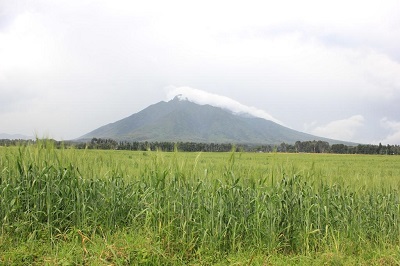
Africa is facing increasing complications in farming as climate change makes weather more unpredictable and leads to mass desertification of previously farmable land. Conservation agriculture (CA) has been touted for decades as the solution, not only to farming in climate change, but as a way to sequester Carbon in soil and actively combat climate change through agriculture.
A new study shows that while CA is well suited to helping farmers adapt to, and even increase profits in changing climates, there is considerable uncertainty about how much CA contributes to the mitigation aspect.
Overall the authors emphasized that the main benefit of CA is the adaptation potential, which helps farmers markedly improve productivity, achieve stable yields and decrease labor inputs, but further research is needed to determine effects on climate change.
Read the full study “How climate-smart is conservation agriculture (CA)? Its potential to deliver on adaptation mitigation and productivity on smallholder farms in southern Africa” and check out other recent publications by CIMMYT staff below:
How climate-smart is conservation agriculture (CA)? – its potential to deliver on adaptation, mitigation and productivity on smallholder farms in southern Africa. 2017. Thierfelder, C., Chivenge, P., Mupangwa, W., Rosenstock, T.S., Lamanna, C., Eyre, J.X. In: Food Security, vol 9, p 537–560.
Nitrogen assimilation system in maize is regulated by developmental and tissue-specific mechanisms. 2016. Plett, D., Holtham, L., Baumann, U., Kalashyan, E., Francis, K., Enju, A., Toubia, J., Roessner, U., Bacic, A., Rafalski, A., Tester, M., Garnett, T., Kaiser, B.N., Dhugga, K. In: Plant Molecular Biology, vol. 92, p. 293-312.
Nitrogen management under conservation agriculture in Cereal-based Systems. 2016. Jat, H.S., Jat, R.K., Parihar, C.M., Jat, S.L., Tetarwal, J.P., Sidhu, H.S., Jat, M.L. In: Indian Journal of Fertilizers, vol.15, no.4, p.76-91.
Novel structural and functional motifs in cellulose synthase (CesA) genes of bread wheat (Triticum aestivum, L.). 2016. Kaur, S., Gill, K.S., Singh, J., Dhugga, K. In: PLoS One, vol.11, no.1, 1-18 p.
Ocurrence and identification of cereal cyst nematode, heterodera filipjevi (nemata: heteroderidae), in Bolu province of Turkey. 2016. Imren, M., Toktay, H., Kutuk, H., Dababat, A.A. In: Nematropica, vol. 44, no. 2, p. 154-161.
On-farm evaluation of hermetic technology against maize storage pests in Kenya. 2016. Likhayo, P., Bruce, A.Y., Mutambuki, K., Tadele Tefera Mueke, J. In: Journal of Economic Entomology, vol.109, no.4, p. 1-8.
Stay-green and associated vegetative indices to breed maize adapted to heat and combined Heat-Drought Stresses. 2017. Cerrudo, D., Gonzalez-Perez, L., Mendoza, A., Trachsel, S. In: Remote sensing, vol. 9, no. 3, p. 1-13.
The research and implementation continuum of biofortified sweet potato and maize in Africa. 2017. Tanumihardjo, S.A., Ball, A.M., Kaliwile, C., Pixley, K.V. In: Annals of the New York Academy of Sciences, v. 1390, p. 88-103.
Transgenic strategies for enhancement of nematode resistance in plants. 2017. Muhammad Amjad Ali, Azeem, F., Amjab Abbas Joyia, F.A., Hongjie Li, Dababat, A.A. In: Frontiers in Plant Science, v. 8, no. 750.
Understanding the determinants of alternate energy options for cooking in the Himalayas: Empirical evidence from the Himalayan region of Pakistan. 2017. Dil Bahadur Rahut, Ali, A. Mottaleb, K.A. In: Journal of Cleaner Production v. 149, p. 528-539.
Utilizing high-throughput phenotypic data for improved phenotypic selection of stress-adaptive traits in wheat. 2017. Cairns, J.L., Reynolds, M.P., Poland, J. In: Crop Science, v. 57, p. 648-659.
Investigating Conservation Agriculture (CA) Systems in Zambia and Zimbabwe to Mitigate Future Effects of Climate Change. 2010. Thierfelder, C., Wall, P. C. In: Journal of Crop Improvement, v.24(2), p. 113-121.
 Innovations
Innovations 
